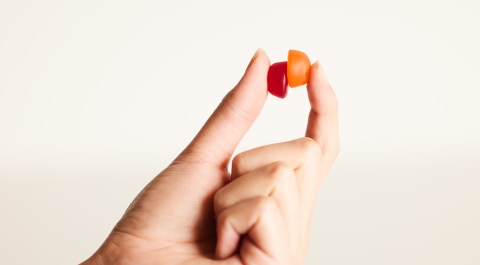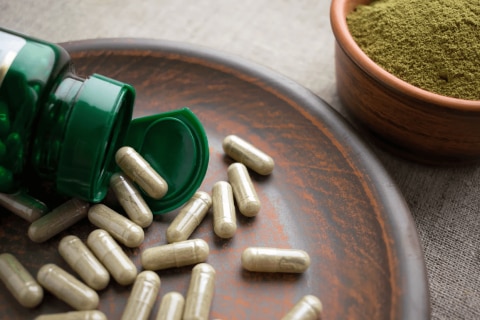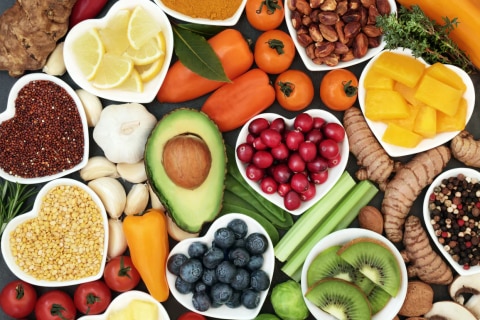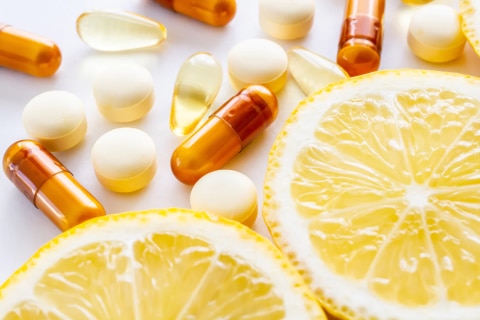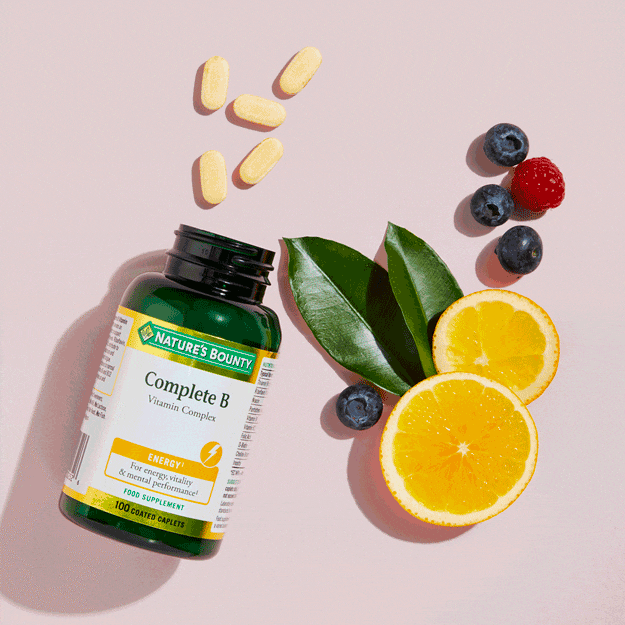
Spotlight on the Sunshine Vitamin
Did you know that across the population approximately 1 in 5 people have low vitamin D levels?1 Statistics like these help explain why vitamin D has overtaken vitamin C as the most popular supplement in the UK.
What is vitamin D?
Vitamin D is one of four fat-soluble vitamins needed by the body, often called the “sunshine vitamin” because it’s made in our skin upon exposure to the sun’s ultraviolet rays. Most of us know vitamin D is important for healthy bones and teeth. This is because it helps our bodies absorb calcium from our diets. However, vitamin D is required for numerous other functions in the body. These include immunity and muscle strength to name a few! 2
Can’t I get enough vitamin D from my diet?
While not impossible, it’s difficult to get sufficient levels from food alone and unrealistic for most people. You would need to eat a portion of sockeye salmon or eight eggs every day! It is important to include these foods along with any fortified options but do not rely on them for your total daily needs.
How do I know if I am low in vitamin D?
Some of the signs you may notice when low in vitamin D include muscle weakness and pain, low energy, recurrent infections, and bone pain among others.3,4 However, the best way to check whether you need extra vitamin D is through a blood test. Whilst there is no consensus on what the optimal level should be, many of the leading vitamin D researchers suggest aiming for between 75 – 150 nmol/L (30 – 60 ng/mL).5 Anything less than 25 nmol/L (10 ng/mL) is considered “deficient.”
How can I make sure I get enough vitamin D?
As well as consuming fish, eggs, mushrooms enriched with vitamin D & fortified foods, a good way is to get some sunshine! You’ll want to consider the time of day because the sun’s not usually strong enough to make vitamin D in the early morning or late afternoon. During winter months in locations with a northern latitude like the UK, the sun might also not be strong enough for your skin to make any vitamin D at all.
The best time in the UK to make vitamin D from unprotected sun exposure is in the spring and summer months between the hours of 11:00 and 15:00. Because this is when the sun is at its strongest, safe and sensible sun exposure is a must. A general guideline is to expose skin such as from arms and legs for a few minutes at least three times a week to achieve and maintain optimal vitamin D levels. If concerned about fine lines and wrinkles, you can make sure you protect your face by either covering up or applying sun cream.
The amount of time can vary depending on skin type and age. Individuals with pale skin needs approximately 10 minutes exposure on the arms, hands, face and lower legs whereas those with very dark skin may need up to 30 as the increased melanin content of the skin acts as a natural sunscreen.6 ,7 Take into consideration that many beauty creams and cosmetics contain UV protection that will significantly reduce the amount of vitamin D that is produced.
Consider a supplement:
The Scientific Advisory Committee on Nutrition (SACN) recommends that the UK population* should consider taking a vitamin D supplement containing 400 IU (10 µg) during the autumn and winter months. This is to help prevent suboptimal status or deficiency as the sun’s ultraviolet rays aren’t strong enough to stimulate production in the body during this time. Vitamin D is normally provided in two different forms: Vitamin D2 (ergocalciferol) and vitamin D3 (cholecalciferol). Vitamin D2 is found primarily in mushrooms grown under extra UV light. Vitamin D3 is found in egg yolks, liver or oily fish. Vitamin D3 tends to be the preferred form as it is more potent and bioavailable, so it gets to work faster in your body.8
Is taking a vitamin D supplement safe?
A total upper daily intake of 4000 IU (100 µg) is considered safe for adults.9 Higher amounts should only be taken under doctor’s supervision.
The Bottom Line
Vitamin D plays many critical roles in the body, so it’s important to make sure you are getting enough. Correcting a suboptimal vitamin D status or vitamin D deficiency is easy with the right diet, supplementation, and safe sun exposure. It could also have a big impact on your health!
Check out our range of vitamin D supplements here!
If you’re pregnant, breastfeeding, taking any medication or under medical supervision, please consult a doctor or healthcare professional before using food supplements. Food supplements should not be used instead of a varied balanced diet and a healthy lifestyle.
References:
- New advice on vitamin D. British Nutrition Foundation. https://www.nutrition.org.uk/nutritioninthenews/new-reports/983-newvitamind.html
- Vitamin D contributes to the maintenance of normal bones, to normal absorption/utilisation of calcium and phosphorus, normal function of the immune system and to the maintenance of normal muscle function.
- Thacher, T. D., & Clarke, B. L. (2011). Vitamin D insufficiency. Mayo Clinic proceedings, 86(1), 50–60. 7. Siddiqui M, Manansala JS,
- Abdulrahman HA, Nasrallah GK, Smatti MK, Younes N, Althani AA, Yassine HM. Immune Modulatory Effects of Vitamin D on Viral Infections. Nutrients. 2020 Sep 21; 12(9):2879
- Scientists’ call to D* action. The Vitamin D Deficiency Epidemic. 2015 https://www.grassrootshealth.net/wp-content/uploads/2017/12/scientists_call-to-daction_121817.pdf
- Webb AR et al. Colour Counts: Sunlight and Skin Type as Drivers of Vitamin D Deficiency at UK Latitudes. Nutrients. 2018 Apr 7;10(4)
- Webb AR et al. Meeting Vitamin D Requirements in White Caucasians at UK Latitudes: Providing a Choice. Nutrients. 2018 Apr 17;10(4).
- Heaney RP, Recker RR, Grote J, Horst RL, Armas LAG. Vitamin D3 is more potent than vitamin D2 in humans. J Clin Endocrinol Metab. Published online 2011. doi:10.1210/jc.2010-2230.
- Scientific Opinion on the Tolerable Upper Intake Level of vitamin D. EFSA Panel on Dietetic Products, Nutrition and Allergies. European Food Safety Authority (EFSA), Parma, Italy. EFSA Journal 2012;10(7):2813
* (excluding formula fed babies under the age of one)
Don't keep all the good info to yourself.
Share this with friends!
Explore more blogs:
